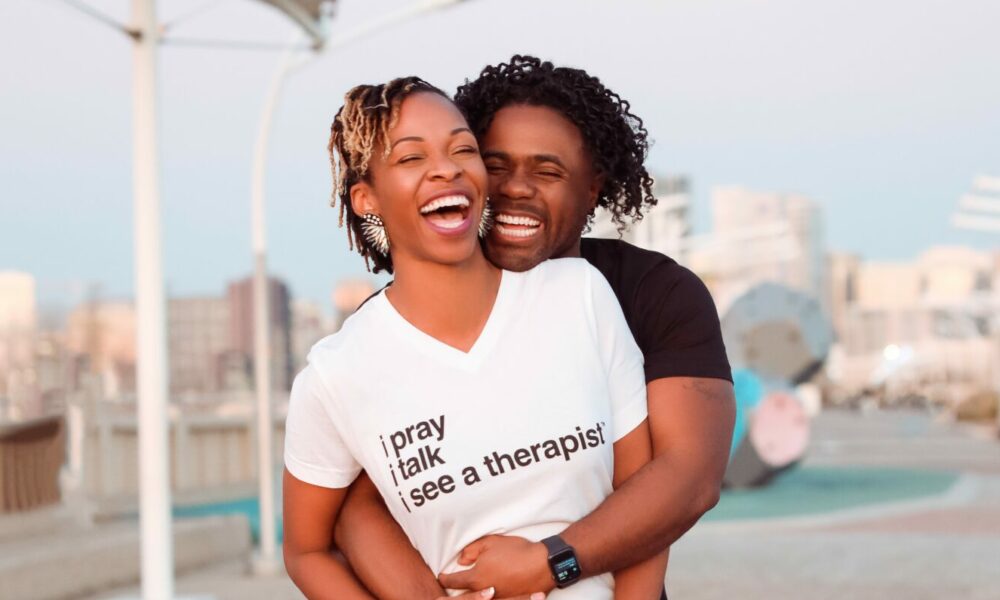

Today we’d like to introduce you to Gary & Brittney Wardlaw.
Hi Gary & Brittney, we’re thrilled to have a chance to learn your story today. So, before we get into specifics, maybe you can briefly walk us through how you got to where you are today.
Hello! We are the Wardlaw’s! My name is Brittney, I am a wife, mother of five beautiful queens-in-training. I am also an attorney by trade, an entrepreneur, and activist with over 12 years of professional experience in higher education. And I am Gary—my friends call me G.P. I am married to my bestie and a girl dad (x5)! I am a dually licensed therapist, as an LMFT (licensed marriage & family therapist). Personally, I experienced a great deal of healing while studying to become a therapist and I saw the freedom, peace, and wholeness that could be available to a black man, a black marriage, and a black family. In spite of the trauma I experienced in my life, I now know what was not only available to me but so many others if they are willing.
Our story starts in Virginia. I (Brittney) was recruited and offered a job that we decided and felt called to accept which would move us from the east coast—leaving all that we knew which included our family, careers, familiarity, and comfort in January 2017. It was the three, soon to be four us, and we were headed to Waco, TX. I (Brittney) willingly took a demotion, as I believed that I could bring my skillset, experience, and passion to build/rebuild a Title IX department in the midst of the University’s very public crisis. My passions have always lied in advocacy for marginalized spaces and people groups.
I (Gary) left my Ph.D. program, my position as a therapist on a psychiatric unit, and my part-time job at a private practice. I would be taking a career change as a stay-at-home dad. After a challenging but enjoyable year as a stay-at-home parent, I felt it was time to put my skills as a therapist back to use. I started looking for a part-time position as a therapist in Waco. As I looked for practices to join, I quickly realized Waco was experiencing a crisis as it relates to access to mental health care—specifically for marginalized populations. The population in McLennan County there are approximately 250,000 residents—13% of which are Black, and of the numerous private practices in the city of Waco and McLennan County, there were no black male therapists available to be retained.
This is where I faith stepped in. With minimal background in running, owning, or starting a small business, I approached my wife with the idea to start my own private practice. She loved the idea and responded with an emphatic “yes!” By September 2018, we were cutting the ribbon to our first business, clinic, and private practice—The Relationship Clinic of Waco. Before we cut the ribbon, we had a friend who wanted to encourage us from a marketing specific to “put something on a shirt” for the ribbon cutting. I quickly decided to use “I pray. I talk. I see a therapist” as that encapsulated our desire to destigmatize mental health—specifically in communities of color and communities of faith. Unbeknownst to us, this ribbon-cutting marketing strategy quickly became core to our brand.
In 2020, our family experienced very real and personal racial trauma. I (Brittney) had been transferred from the Title IX Office to the EEO & Civil Rights office at Baylor in order to build and advocate for a different marginalized population. Unfortunately, not only did I see the problem perpetuated during my tenure, I myself was experiencing personal, daily racial marginalization. The more I spoke up on behalf of others or myself, the more my career suffered. While it took years to understand the depth of the impact, I made a decision in June of 2020 to publicly speak out about what had been happening and leave the university altogether.
We recognize that we were not only having our experiences, but we watched everyone around us navigate their own racial trauma as well. We made a decision to pivot and decided our clinic would be a space to address the ongoing effects of racism. We began to research and identify ways to therapeutically address racial trauma. It was a difficult and trying time for us and many people in the city, the state, and the nation. But we strongly believed TRC could be a space to promote healing from what we all had experienced and what we were all going through as we watched the murder of black lives, the countless deaths and mental health trauma from the pandemic, and the fear and anxiety of the unknown.
Our destigmatizing branding and marketing was now a platform to communicate how we could all take steps toward healing from racial trauma as well. As people of faith, prayer was where we all started because it kept us grounded and centered. We wanted to encourage talking because of the freedom and liberation that come to us when we are able to talk as well as the liberation of others when they hear you speak your truth. And last but not least, encouraging everyone to get the professional help they needed in the healing process.
During 2020, our clinic did incredibly well. After having a caseload with both Waco and Dallas clients, our family decided that there may be opportunity for us to explore expanding to Dallas. We began looking for new residence in Dallas and quickly found both the home and clinic that was perfect for us. By April 2021, we were transitioning to opening our second location which would be a group practice! A group practice that included culturally competent interns and licensed therapists.
Since our move, we have been diligently working to get the word out about our practice. We know people want the access, but need to be made aware that we are here and passionate about healing—specifically in the areas of racial, marital, and family relationships. We work with people on the individual level as well as within their “systems.” Those systems include but are not limited to their partnership/marriage and their family in the form of counseling, coaching, and consulting!
Alright, so let’s dig a little deeper into the story – has it been an easy path overall, and if not, what were the challenges you’ve had to overcome?
One of the primary obstacles of navigating racism has been on both a micro and macro level. As mentioned, we have had very real and personal experiences with racism since we moved to Texas. This included our time at both Antioch Community Church and Baylor University in Waco. We were compelled to speak out not only for ourselves but because we knew there were countless other untold stories. But we also had to recognize the impact of speaking out on both a personal/social level and economic level as we would (did) lose significant business support and community as a result. We recognize and hear the voices of those who were grateful for our voices, but they had little control over the very real impact that our family would feel.
Stigma
Although seeking mental health services are becoming more socially acceptable, stigma remains—specifically in communities of color and communities of faith. To address the stigma, we have promoted our campaign – I pray. I talk. I see a therapist. It aims to tear down the stigma that we believe inhibits people from seeking the help they need.
Prayer.
Often times we are told that prayer or going to church is all a person needs to address their mental, emotional, and relationship challenges. Further, people hold onto the childhood message to “keep it to yourself” or “what happens in the house stays in the house.” There can be a lot of shame that is unnecessarily carried because we were never give the space to talk about or share what’s bothering us. Lastly, even if a person builds up the courage to see a therapist, the message is often, “you are crazy for doing that.” There is an assumption that only people that are mentally ill see a therapist. Our campaign seeks to eradicate each of the myths—letting people know that it is okay to do all three. In fact, it is sign of strength and health.
Capital
As a small start-up organization, we have struggled with finding the capital to scale our business while preventing burnout for ourselves as well as our therapists on the team.
We also have seen financial barriers keep people out of therapy. Finding a therapist with experience and who is skilled and culturally competent can be an expensive but a worthy investment. It is difficult to find the right price point for our staff that respects their value but does not price people out of access. We have found two ways to address the need as best we can. One, we have worked to build our practice into an internship site. This creates a space for more therapists of color to enter the field and also provides an opportunity for any therapist to become more culturally competent. The intern therapists are able to offer their services at a significantly discounted rate.
Two, we have begun the process to start a non-profit. The purpose of this non-profit will be to provide scholarships for people to receive quality mental health care at a rate they can afford, but we also want to ensure that our therapists are compensated at the market value of their services. We believe the nonprofit can help us accomplish both of these needs and desires. Additionally, we want to offer scholarships to more students of color to become licensed therapists in the field.
Thanks for sharing that. So, maybe next you can tell us a bit more about your business?
TRC specializes in counseling, consulting, and coaching services. People should know that with my wife and I, companies, couples, individuals get the best of both worlds. We often describe ourselves as the perfect ven diagram. On the counseling and coaching side of things, we provide balanced perspective for couples who want to grow a family and businesses all while building a strong marriage. As a licensed therapist, I have the ability to assess and treat deeper mental or emotional challenges that may be interfering in someone reaching their goals. My education and experience both professionally and in my home demonstrate an ability to administrate, organize, plan, think strategically, and identify new perspectives and opportunities for forward movement and growth.
Another unique aspect of our vin diagram is that as we pivoted to a focus on racial trauma in 2020, we quickly saw what a valuable asset we were for both non-profit and for-profit organizations that are looking to prevent and respond to matters of race equity, diversity, equity, and inclusion. As a unit, we are able to provide both preventative and responsive education to staff and leadership in the workplace so that they can better serve their clients as well.
We are proud that we have been able to work with organizations such as the Baltimore Ravens, Chick-Fil-A, Farmers Insurance, and various Counselor Associations across the nation in both the relationship (marriage, family) and race equity/DEI spaces. We are dynamic as a unit and love any opportunities to speak and work together.
I am proud that we are family-owned, family-centered, and quality driven. We are diligent to bring a unique, customized experience wherever we go. Not only that, but you may see us in action in tow with our four daughters as well. As we often say, “we are a unit.” We pride ourselves on being both family-centered and family-friendly.
Additionally, people will often stop us and comment on how much they like our shirt/campaign and ask how they can purchase. People can support us by purchasing merch and wearing it! We do not take it lightly when someone chooses to wear our merch because it is a vulnerable message to promote. We are very appreciative of any opportunities to collaborate with small and large corporations that are willing to provide partnership opportunities by allowing us time on your platform, whether it’s staff meetings, retreats, or professional development to bring this message of healing to your teams. Lastly, we welcome corporate sponsorships opportunity when companies purchase a large quantity or a bulk order of merchandise (i.e., shirts) for their staff.
Tell people we are here and ready for business! Too often when we meet people and share what we do professionally and about our campaign, they always say, “I didn’t know this existed or that you were here!” So, please share our story, our clinic, and our message!
Contact Info:
- Website: https://www.therelationshipclinic.com
- Instagram: https://www.instagram.com/p/Ci0uSvnPBnq/?igshid=MWI4MTIyMDE%3D
- Facebook: https://www.facebook.com/officialtrc2018/
- Youtube: https://www.youtube.com/@wardlawstowaco2349/videos
- Other: https://www.linkedin.com/in/gary-“gp”-wardlaw-lmft-lpc-ncc-70032aba/
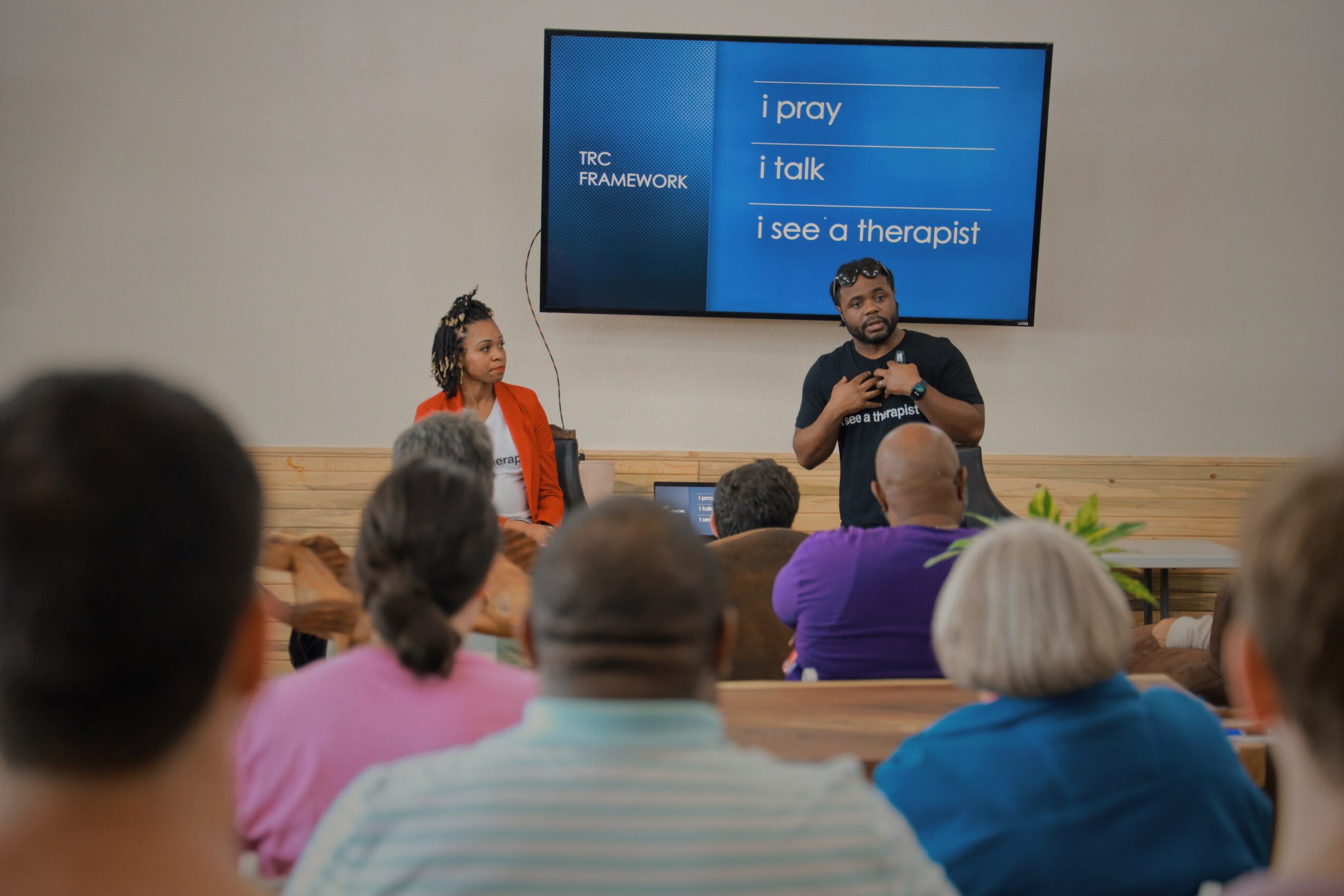
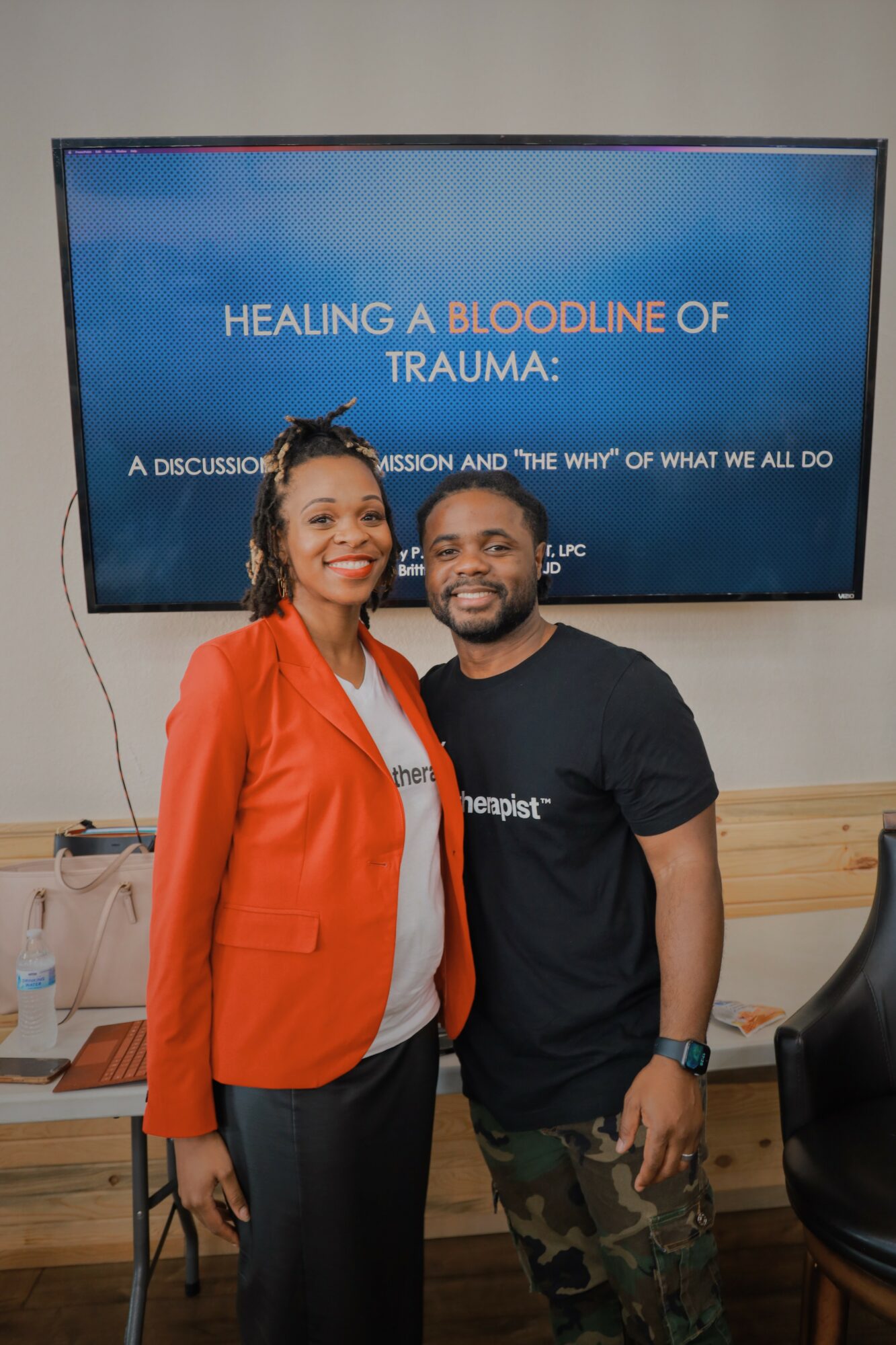
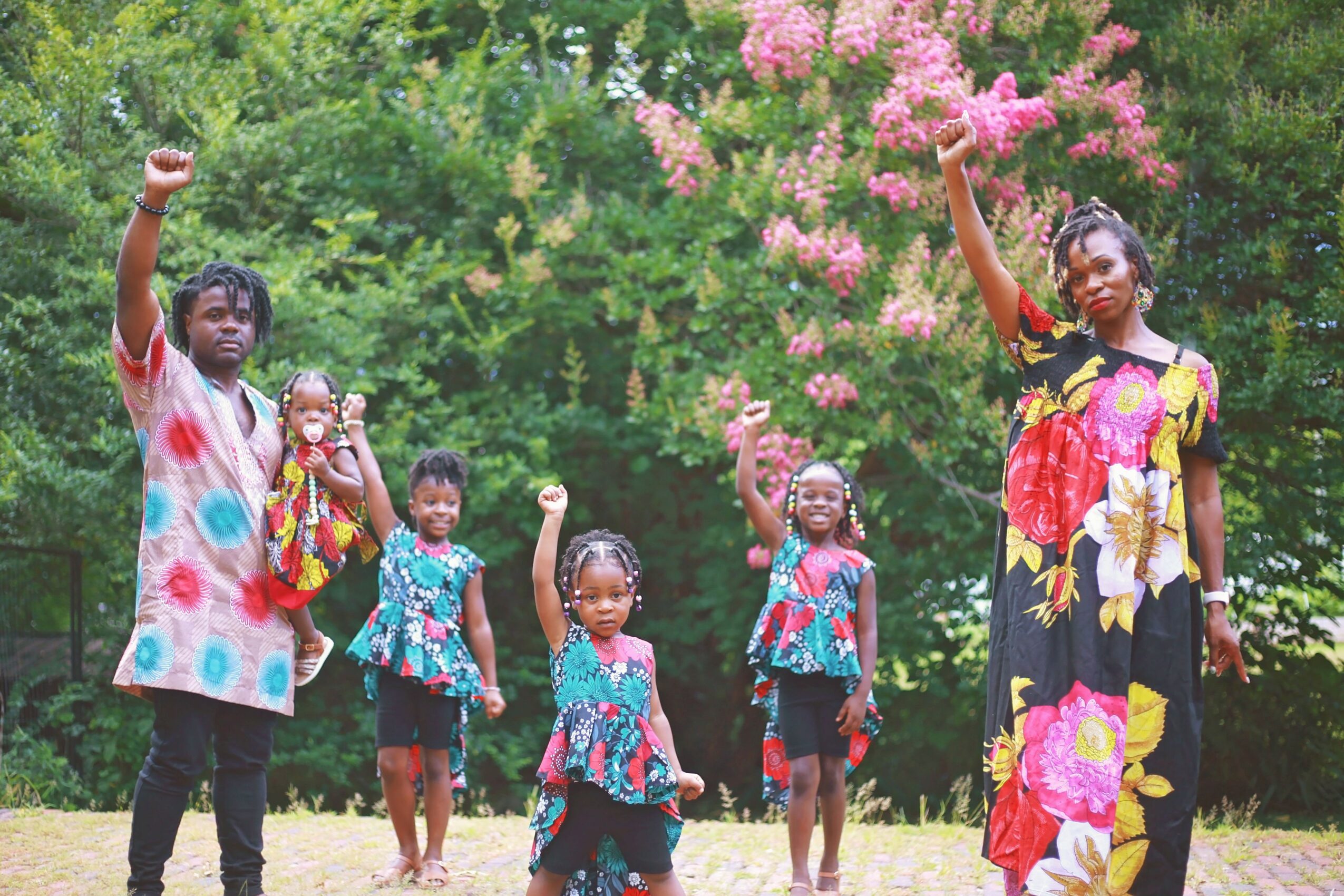
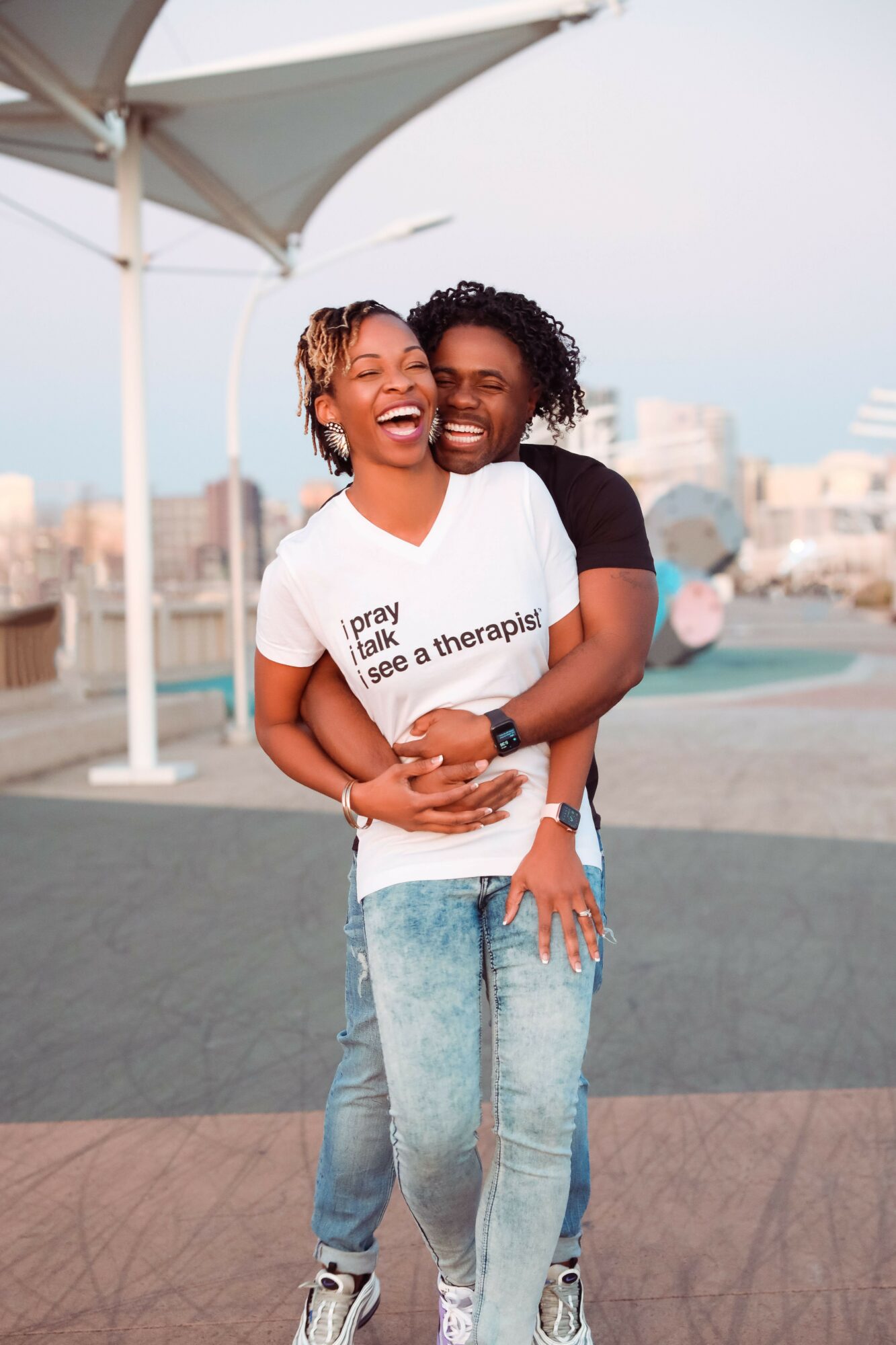
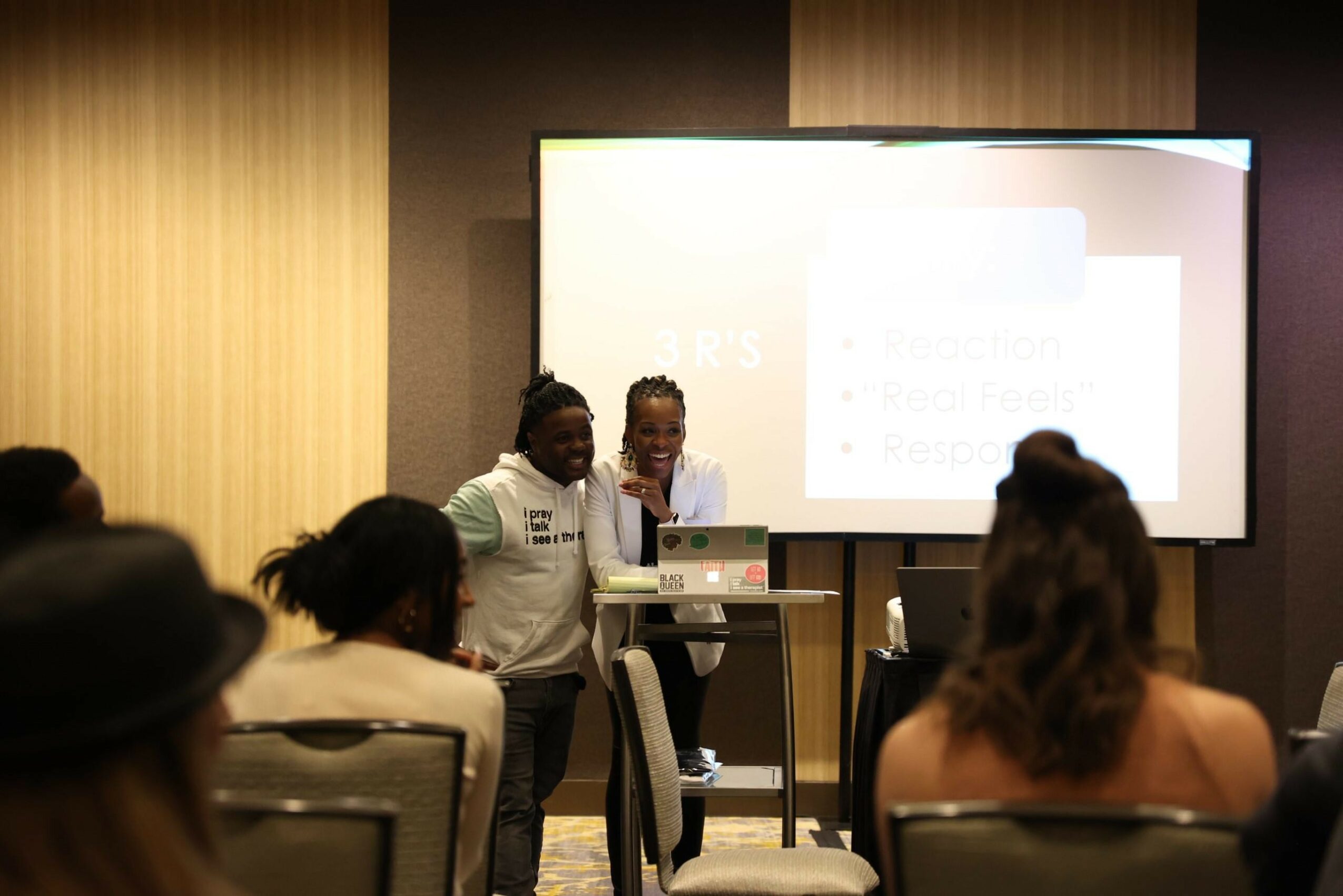
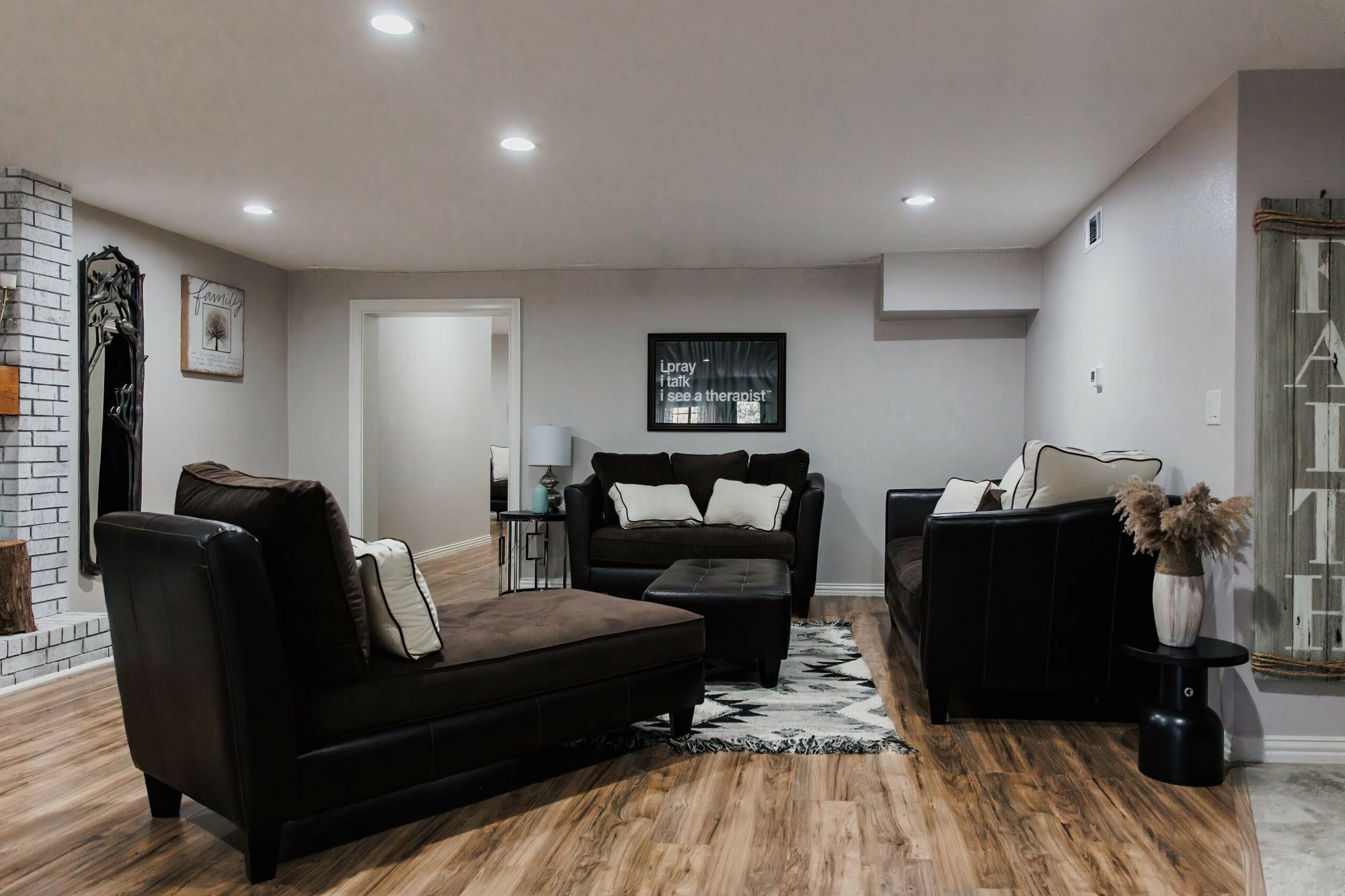
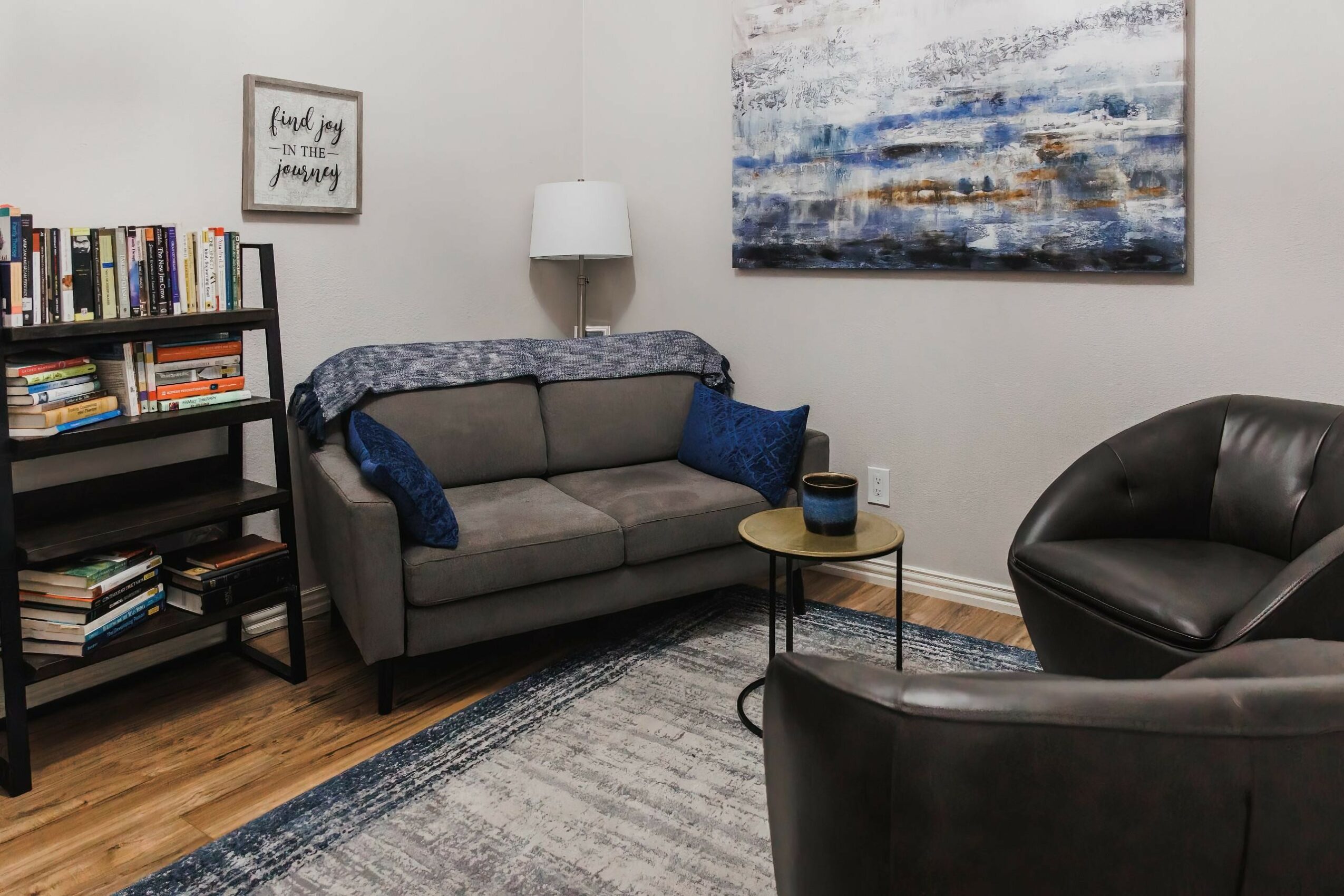
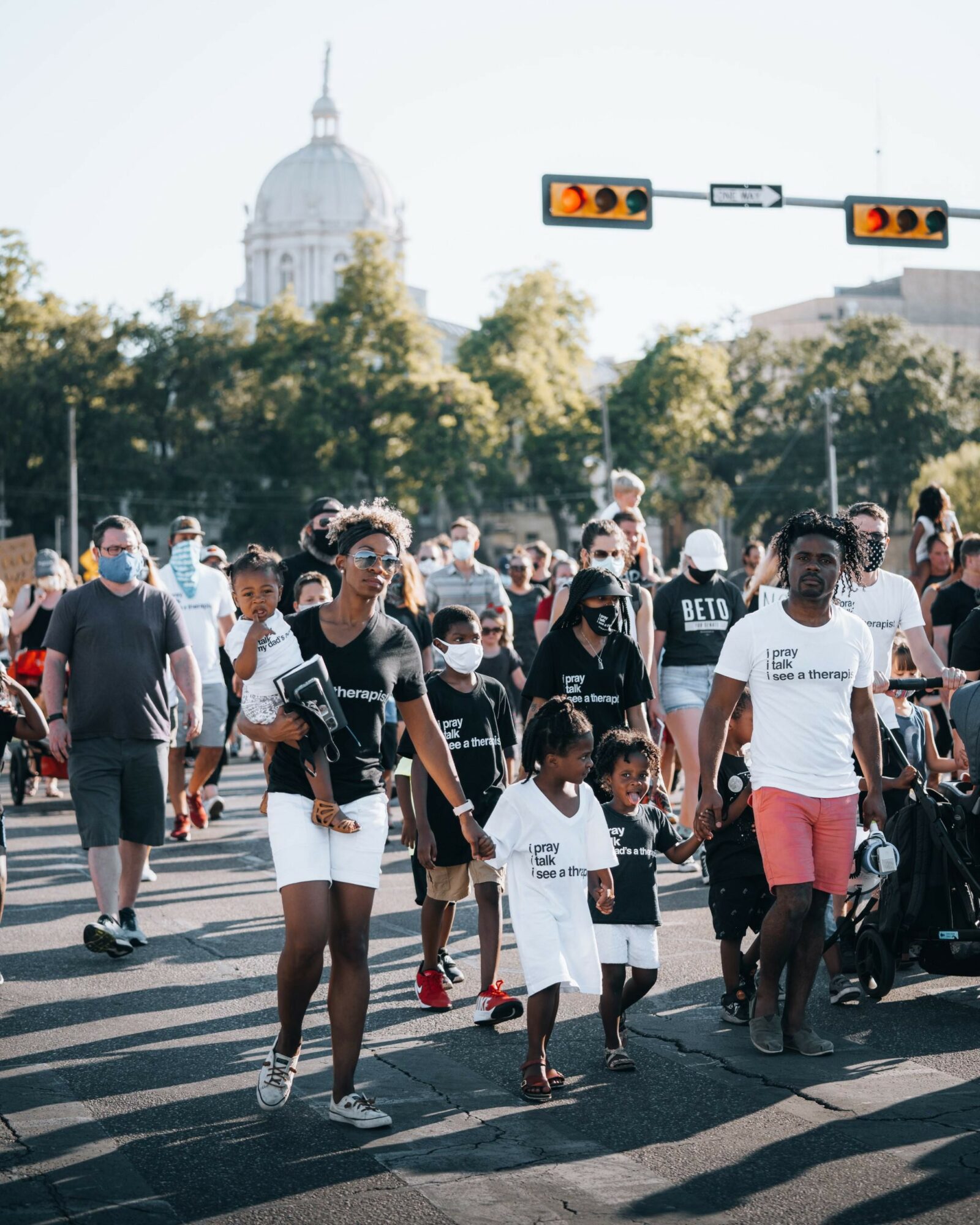
Image Credits
Brittany Stallings Photography
DporterProductions
EJ Severide
Joshua J
Martin Photography










